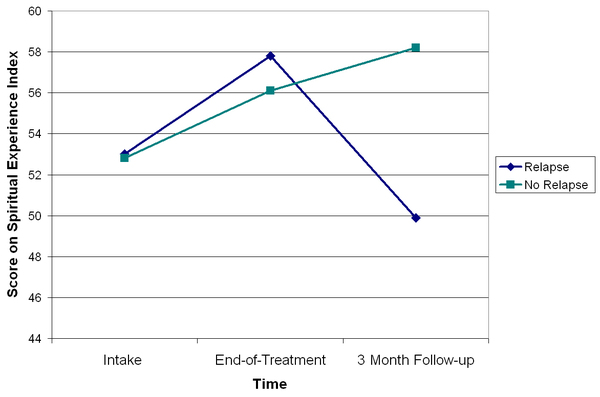Addiction & the Humanities Vol 4. (6) – Can the spirit move you?
Research has linked spirituality with both physical and mental well-being (Hawks, Hull, Thatma, & Richins, 2005; Kass, Friedman, Lesserman, Zuttermeister, & Benson, 1991). Moreover, Alcoholics Anonymous and Narcotics Anonymous, popular 12-step programs, endorse the concept of addiction as a combination of spiritual, biological, and psychological disorders. However, few studies have examined the influence of spirituality on addiction recovery. This week’s Humanities reviews a study focusing on the relationship between the development of spirituality and relapse among individuals receiving treatment for alcohol dependence.
Methodology:
- Study Design
- Retrospective case-control study
- Participants and their survey responses were selected from 278 individuals after they completed a larger study about spirituality and treatment outcomes
- Participants
- Participants: 72 individuals completed intake and 3 month follow-up: 36 who relapsed (cases) & 36 who did not relapse (controls). 50 (69.4%) completed end-of-treatment assessment.
- Survey instrument
- At intake and end-of-treatment, all participants completed the Addiction Severity Index (ASI, McLellan, Luborsky, Woody, O’Brien, & et al., 1980) and questionnaires regarding spiritual and religious experiences (e.g., Spiritual Experience Index (SEI), (Genia, 1997)
Results:
- At discharge, 82% of participants reported spirituality to be a critical component of substance abuse treatment.
- Participants experienced significant increases on measures of spirituality from intake to end-of-treatment (See Figure 1).
- However, as can be seen in Figure 1, those who did not maintain abstinence in the past thirty days reported significant decreases in spirituality post-treatment.
- At three month follow-up, participants who reported maintaining sobriety during the past 30 days, reported significant positive growth of spirituality.
Figure 1. Relationship of SEI measured spiritual growth and follow-up relapse (adapted from Sterling et al., 2007)
Limitations:
- Recall bias: retrospective self-report might have affected participants’ responses to survey instruments.
- Selection bias: a small number of participants completed all three phases of the study suggesting that the results might not be generalizable.
- Relapse: participants were asked to report substance use during the previous 30 days, which might not be enough time to measure recidivism.
Discussion:
The findings from previous studies as well as the present study indicate a positive correlation between spirituality and health, specifically alcohol recovery. However, due to the difficulty in defining spirituality, there is a paucity of research examining this relationship. Arnold, Avants, Margolin, and Marcotte (2002), for example, found that although some members of a focus group equated spirituality with organized religion, other participants felt that spirituality was related to inner strength and individuality. Prevention and treatment programs for other addictions such as marijuana, nicotine, and even gambling might benefit from further research examining the correlation between spirituality and addiction recovery. Given the preliminary evidence suggesting the value of spirituality, clinicians also might want to pursue the study of this relationship to determine if a general understanding of spirituality or a spiritual component to treatment could improve treatment outcomes.
What do you think? Comments can be addressed to Sara Kaplan.
References
Arnold, R. M., Avants, S. K., Margolin, A., & Marcotte, D. (2002). Patient attitudes concerning the inclusion of spirituality into addiction treatment. Journal of Substance Abuse Treatment, 23, 319-326.
Genia, V. (1997). The Spiritual Experience Index: Revision and reformulation. Review of Religious Research, 38, 344-361.
Hawks, S., Hull, M., Thatma, R., & Richins, P. (2005). Review of spiritual health: Definition, role and intervention strategies in health promotion. American Journal of Health Promotion, 9, 371-378.
Kass, J., Friedman, R., Lesserman, J., Zuttermeister, P., & Benson, H. (1991). Health outcomes and a new index of spiritual experience. Journal of the Scientific Study of Religion, 30, 203-211.
McLellan, A. T., Luborsky, L., Woody, G. E., O’Brien, C. P., & et al. (1980). An improved diagnostic evaluation instrument for substance abuse patients. Journal of Nervous & Mental Disease, 168, 26-33.
Sterling, R. C., Weinstein, S., Losardo, D., Raively, K., Hill, P., Petrone, A., et al. (2007). A retrospective case control study of alcohol relapse and spiritual growth. The American Journal on Addictions, 16, 56-61.
